Pandas are the animals that fall in the class of mammals as sows or female pandas give birth to fully developed cubs and nourish them on breast milk. Though belonging to the order Carnivora of the mammalian class, they are actually omnivores in their mode of nutrition. Surprisingly, more than 99% of the diet of giant panda species consists of bamboo. However, in the wild, they may also eat other types of grasses as well as meat and even carrion. There are two types of Pandas, namely Giant Panda and Red Panda. They vary greatly both in body size and color and are grouped in two different families of the order Carnivora.
Giant Pandas
Deriving its name from the large and bulky body, the giant panda can grow up to 6 feet in height and measure up to 160 in body weight. The largely white fur coat has patches of black color at many different locations.
Alternative Names:
In addition to giant pandas, you can also call them as panda bear or simply panda. In the scientific nomenclature, however, they are termed as Ailuropoda melanoleuca where first part refers to the name of the genus and the second one is the name of the species.
Classification:
Owing to their close resemblance with both raccoons and bears, there has been a lot of debate on their possible grouping with either of these animals. Molecular studies have solved the issue and confirm them as true bears. The family, order, class and phylum names are Ursidae, Carnivora, Mammalia and chordate, respectively.
Appearance:
Giant pandas have got white fur with large, distinct black patches, particularly around the eyes, on the ears and over the round body. The black fur can also be seen on shoulders, arms, muzzle and legs. The unique blending of black and white colors gives them a very beautiful and attractive look. Their charming appearance makes people love to see them.
Origin and Habitat:
Their origin can be traced to central western and south western parts of China. They are normally seen on high mountains and isolated parts, generally in the Sichuan province of China. Beside their population in the wild, hundreds of pandas can also be seen in captivity in the zoos in China and 13 other countries of the world.
Body Size & Weight:
They are considered as the largest bears of their family. A fully mature panda can attain the height of 4 to 6 feet. It gives them a huge body stature. The adults have the tail size of up to 15 centimeter. With the maximum body weight of 160 kg, the males are heavier than the females as the latter can weigh only up to 125 kg. Surprisingly, the weight of females can also be as low as 70 kg.
Food:
The omnivorous giant pandas spend their time hunting for food especially in the bamboo fields or on the rocks and mountains. About 99% of their food is comprised of bamboo. As the digestion system of the animal is carnivorous, the consumption of bamboo gives it little energy and protein. In the wild, they have also been found as eating other kinds of grasses, meat of rodents and birds, and carrion.
Conservation Status:
Owing to drastic decrease in their population, the International Union for Conservation of Nature (IUCN) has classified these animals as endangered species. Through a survey, it has been estimated that their total population in the wild consists of 1590 individuals. Another report, based on DNA analysis, take the figure a bit higher. It states that their number can be somewhere between 2000 and 3000. However, IUCN is reluctant to change their status to vulnerable.
Red Pandas
This is the second type of panda with considerably reduced body size and predominantly reddish-brown fur coat. It is considered as one of the cutest animals on earth. Owing to the shrinking population size, the animal has been assigned the conservation status of “vulnerable” by the IUCN.
Alternative Names:
You can call them with various other names as well, including, red cat-bear, red bear-cat and lesser panda. “Lesser” has been attached to its name because of the relatively small body size as compared with that of giant panda, whereas “red” refers to the hue of its fur coat. It is scientifically known as Ailurus fulgens with the first part of the name denoting genus and the second part specifying the species.
Classification:
Red and giant panda species have been classified in the same phylum, class and order. Divergence occurs at the family level where the former is assigned the family Ailuridae and the latter falling in Ailuropoda. According to F. Cuvir, a French zoologist, there are two sub-supecies of red panda, namely, A. f. fulgens and A. f. styani.
Appearance:
This small creature has got different body dimensions and appearance as compared with its giant counterpart. Slightly larger than a domestic cat, it wears a coat of reddish-brown fur. You can also see patches of white fur on the muzzle, around eyes and on ears. The lower parts are covered with blackish fur. The shorter front legs give it a wadding gait.
Origin & Habitat:
The red panda species is native to the south western China and eastern Himalayas. Its natural habitat of temperate forests starches from western Nepal to China in the east. Fond of the moderate temperature of between 10 to 25 0C, red panda prefers to live at the altitude of 2,200 to 3,600 meters. The deciduous and coniferous forests with old tress and dense understories of bamboo serve as a favorite place to live for this animal. The population of this beautiful creature is continuously on the decline because of different factors, such as poaching, inbreeding depression, fragmentation and especially the loss of habitat.
Body Size and Weight:
This species of panda is comparatively very small as compared against the huge size of Ailuropoda melanoleuca. The overall body seems to be slightly larger than that of a domestic cat. Concerning the length of the body including head, it may measure up to 25 inches. On the other hand, the tail length is only slightly shorter, i.e. it is 23 inches. The weight of the males and females is almost equal. The males may weigh up to 6.2 kg while, in the opposite gender, it may go up to 6 kg.
Food:
Despite the fact that red pandas are grouped among the carnivorous animals, they are adopted to omnivorous mode of nutrition. Though their principal diet consists of bamboo, they also feed on insects, birds, berries, eggs and flowers. Being excellent climbers, they usually forage in trees. While in captivity, these beautiful animals have also been witnessed to feed on leaves and fruit of mulberry tree, and the fruits & bark of maple.
Conservation Status:
As a result of habitat loss, poaching, fragmentation and some other factors, the population size of red pandas has considerably decreased. In the wild, their number is less than 10,000. That is why the International Union for Conservation of Nature has listed them as vulnerable animals. If the population size goes on decreasing with the same pace, a day is very likely to come when they will be listed as endangered and later on ‘critically endangered’ species. So, all the factors that are contributing to its decline have to be identified and controlled before it is too late.
Latest Mammals
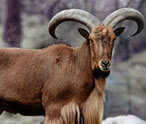
Types Of Goats
Goat is a mammal that belongs... read more
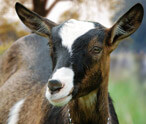
Goat Facts
A domesticated form the wild goat of...read more
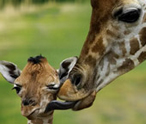
Giraffes Facts
Giraffes are creatures with extremely...read more
Latest Birds
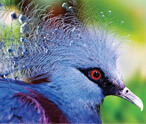
Victoria Crowned Pigeon
With its name...read more
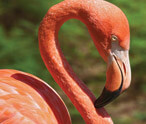
Information About Flamingos
Flamingos are...read more
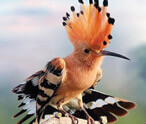
Hoopoe Bird
Famous for its distinctive crown of...read more
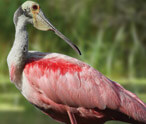
Roseate Spoonbill
The beautiful Roseate Spoonbill...read more





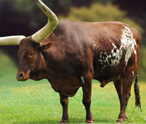

















Largest Birds of Prey in the World by Size and Weight
Also called raptors, the birds...
List of Birds That Fly in V Formation
Did you ever feast your eyes on the amazing phenomenon...
Birds of Prey List
A bird of prey is also known as a raptor or a hunter. It belongs to the group of...
Millipedes Vs Centipedes
Centipedes and millipedes are both arthropods from the group...
Difference Between Warm Blooded and Cold Blooded Animals
Every living organism...
Top 10 Extremely Dangerous Insects
The insects have been grouped in class 'insecta' of...
Sheep Vs Goat
The goat and the sheep are related to each other through the same family. They...
Animals with Blue-colored Blood
Humans and other vertebrates have red-colored blood running...
Birds, Mammals And Reptiles
Before coming to the question of common ancestry of birds...